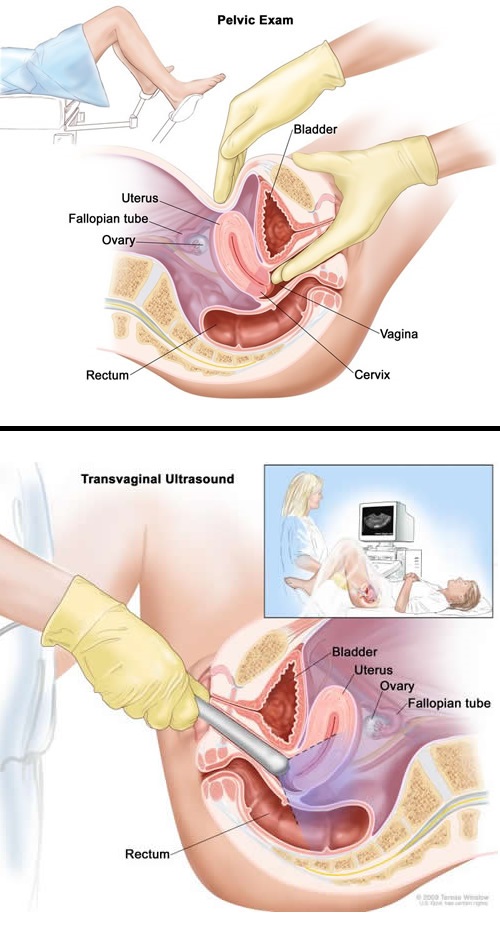- Physical Exam: The physical exam will measure your blood pressure and BMI. Your doctor may also look at your face, chest, and/or back for excess hair, acne, or discoloration. Your doctor may also check for hair loss and signs of other health conditions like the size of the thyroid gland.
- Blood Tests: Testing your blood can help with analyzing hormone levels commonly known as male homrones. Your doctor may also check for other hormones that are related to common health issues that could be mistaken for PCOS, such as thyroid disease. Your doctor may also test your cholesterol levels and test you for diabetes.
- Pelvic Exam: Your doctor may do a pelvic exam to look at your reproductive organs from the outside and inside to check for growths, masses, and abnormalities. This is important because your doctor will be able to feel your uterus and ovaries to determine their condition.
- Transvaginal Ultrasound: A transvaginal ultrasound is done by your doctor placing a wand-like device in your vagina. This device transmits soundwaves that helps doctors to see your uterus and ovaries. The ultraosund helps doctors analyze the size of your ovaries and if there are cysts in your ovaries as well as the thickness of the uterine lining.
|
 |



